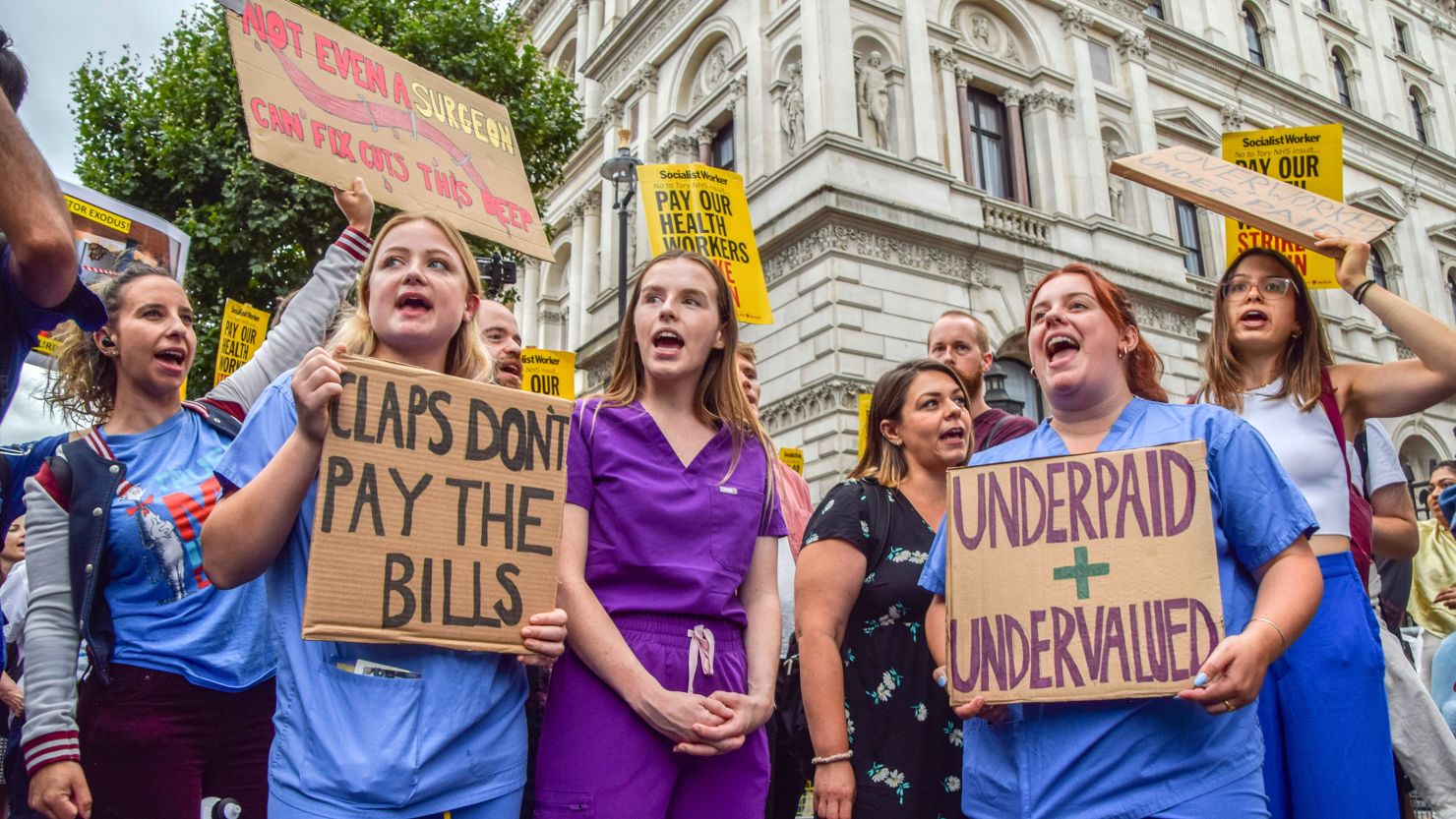Britain is bracing for further disruption from strikes heading into the Christmas period, as ambulance drivers and nurses join rail operators and postal workers in the worst wave of walkouts the country has endured for at least a decade.
More than 20,000 ambulance workers, including paramedics and call handlers, are expected to strike on December 21 in a dispute over pay, according to statements from labor unions GMB, Unison and Unite.
The strike will involve just under half of all ambulance drivers in England, Wales and Northern Ireland, although unions have said they will cover life-threatening emergencies during the walkouts. More than 10,000 ambulance workers represented by the GMB Union will strike again on December 28.
Ambulance workers, like others in the UK National Health Service (NHS), “are on their knees,” according to GMB national secretary Rachel Harrison.
“Something has to change or the service as we know it will collapse. GMB calls on the government to avoid a winter of NHS strikes by negotiating a pay award that these workers deserve,” she said in a statement.
Strikes have swept the United Kingdom this year, as workers grapple with a cost-of-living crisis and stagnating wages. Consumer prices rose by 11.1% in the year to October, a 41-year high, Once inflation is taken into account, average wages fell by the biggest drop on record earlier this year, and were still declining in the June-September period.
According to The Times, one million UK workers are set to strike in December and January. Data from the Office for National Statistics (ONS) shows Britain has already lost at least 741,000 days to strike action this year, putting it on track for its worst year of labor disputes in at least a decade.
Hospitals face nursing strike
In a sign of how desperate many workers feel, strikes are now extending to sectors previously virtually untouched by industrial action.
The Royal College of Nursing (RCN) is planning its first ever strike action on December 15 and 20 in England, Wales and Northern Ireland, after it said the UK government declined formal wage negotiations. Strike action in Scotland has been paused after the Scottish government reopened wage talks.
The union said that critical care will be exempt from strike action but non-critical services will have lower staffing levels.
“Nursing staff have had enough of being taken for granted, enough of low pay and unsafe staffing levels, enough of not being able to give our patients the care they deserve,” the union’s general secretary Pat Cullen said in a statement.
The RCN is campaigning for a pay increase that is 5% above inflation to make up for raises that it claims have left experienced nurses earning 20% less than in 2010 after accounting for inflation.
According to the RCN, 25,000 nursing staff left the profession in the last year and there are 47,000 unfilled nurse posts in England’s NHS alone.
The UK government has pushed back on demands by ambulance drivers and nurses, and it’s talking about deploying the military to cover gaps in services. “The economic circumstances mean unions’ demands are not affordable,” health and social care minister Steve Barclay said in a statement.
Over 1 million NHS workers will receive a pay rise of at least £1,400 ($1,705) this year, according to Barclay, with those on the lowest salaries receiving an increase of up to 9.3%. “Our priority is to ensure emergency services continue to operate for those who need it and limit disruption,” he added.
As well as hospitals, postal services and public transportation, which have already experienced widespread disruption this year, are in for more trouble this Christmas.
The Communication Workers Union (CWU), which represents 115,000 postal workers, has notified Royal Mail of additional walkouts on December 9, 11, 14 and 15. The union is also planning strikes on December 23 and 24. The disruption is likely to jeopardize Christmas deliveries and will weigh on small businesses in particular during what is a crucial trading period.
Planned strike action by RMT, which represents more than 83,000 transport workers, promises to disrupt rail services on December 13, 14, 16 and 17, and for four days starting Christmas eve.









